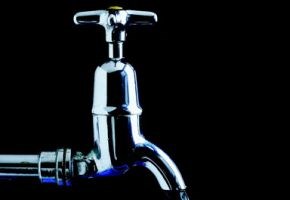City officials say homes in Greater Sudbury that date back to the early 1950s and before are at risk from a health hazard: lead or solder used in their plumbing systems.
Lead is a toxic heavy metal. Infants and young children are most at risk for reduced hearing, muscle co-ordination and intellectual development, states a fact sheet from the Ontario Ministry of Environment (MOE).
City officials are asking for 400-500 people, from all over the city, to volunteer to participate in a lead testing program.
“What happened is that some homes in London in 2007 were found to have elevated levels of lead in their tap water from their plumbing and so the MOE last summer had 25 cities including Greater Sudbury take samples,” said Nick Benkovich, director of water and wastewater services for Greater Sudbury.
“We took 70 samples from houses and buildings all over the city, targetted the older areas of the core city and outlying communities out to Capreol and Levack. None exceeded the limit of 10 parts per billion, 10 micro grams per litre,” said Benkovich.
The MOE recently passed Regulation 170, which requires municipalities to regularly sample potable water in homes and businesses for potential lead contamination, said Benkovich. Municipal distribution piping systems are also tested. Thirty samples were taken from water distribution points this summer. All passed the testing, he said.
Residents, landlords and private businesses are eligible to apply for regular testing in their drinking water at no charge.
To register for testing of your drinking water, phone 311, ext. 3630. Participants will be asked to provide their names, address, telephone number and the approximate age of the home or business and when is the best time to be tested, morning or afternoon.
“We prefer to come during regular business hours but we are prepared to be flexible in terms of people's schedules,” said Benkovich.
Volunteers will be contacted twice annually by the City of Greater Sudbury to make an appointment for water testing. A licensed water operator will visit the home or business to take water samples directly from the tap. Each appointment will require approximately one hour for water sampling and testing. The kitchen tap, or the most heavily used tap, is the one to be tested, said Benkovich.
“The technician runs the water for five minutes, then the water is shut off for 30 minutes and a sample is taken. It will be tested for lead, pH and temperature,” he said.
Results, which are kept confidential, are given back to the owner in written form within seven days.
Though people are calling as the result of ads taken out by the city, more volunteers are still needed, said Benkovich.
“We have about 50 to 100 volunteers but we need a total of 400 before March, including non-residential building owners.”
